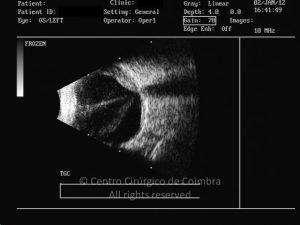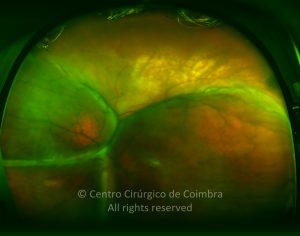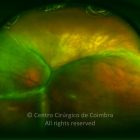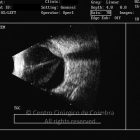Exudative retinal detachment occurs when fluid passes into the subretinal space due to damage of the retinal blood vessels and the retinal pigment epithelium. It is generally caused by neoplasia and inflammatory diseases, but any disease affecting choroidal vascular permeability can potentially cause an exudative detachment.
Symptoms include decreased vision, visual field defects, and sometimes pain and leukocoria.
In exudative detachment, the detached retina is smooth in texture. The subretinal fluid responds to the force of gravity and detaches the area in which it accumulates.
Its treatment is usually non surgical.
Exudative retinal detachment may be secondary to preeclampsia and usually resolves after absorption of the subretinal fluid. However, severe eclampsia may cause permanent visual loss due to RPE necrosis.









